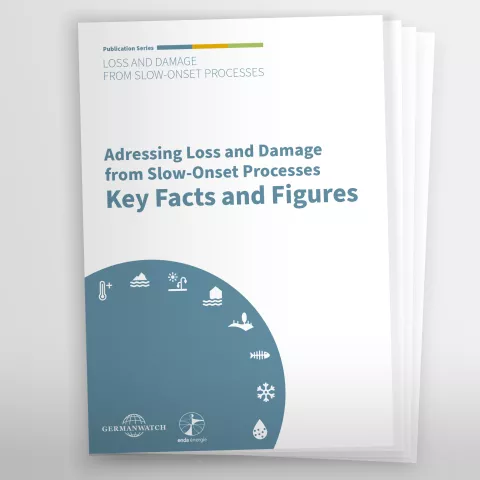
Slow-onset processes like sea level rise or desertification substantially impact people’s lives, cause loss and damage, obstruct the enjoyment of human rights, and impel human mobility. In contrast to extreme weather events, loss and damage caused by slow-onset processes is still often neglected in the climate change context, both at the national and international levels. This is due to several gaps and challenges in coping with and managing these processes and their outcomes. These include lack of common understanding of terminology related to slow-onset processes, and lack of data and knowledge on these losses and damages (particularly at the local level). They also include lack of clarity regarding adequate measures for dealing with the loss and damage caused by slow-onset processes.
Three studies conducted by Germanwatch and ENDA in 2021 have responded to these challenges. Through the analyses, we seeked to foster awareness of the urgency for action in this area and find tangible and feasible solutions to address loss and damage from slow-onset processes. This is with the aim of providing input for policy processes at the national and international levels. This fact sheet summarises key findings of the studies, based on recent policy developments and scientific findings. We have included key facts and figures to answer important questions, such as: What are slow-onset processes? What losses and damages do slow-onset processes cause? What approaches and measures are there to address loss and damage due to slow-onset processes? What are financing instruments and sources to adequately address loss and damage due to slow-onset processes?




